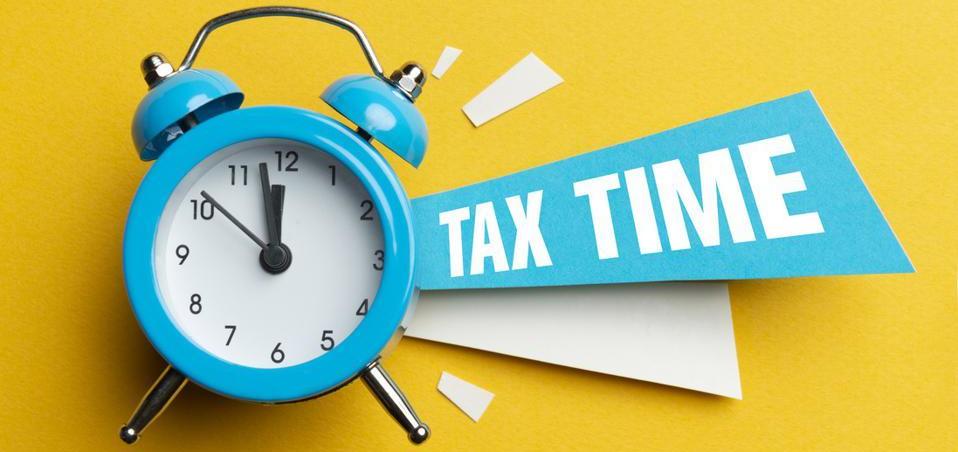2021/22 Year End Tax Planning
Posted on 12th March 2022 at 18:28
Are you prepared for the end of the tax year?
Then new tax year begins on 6th April 2022. A new tax year brings changes to tax rates, thresholds and allowances but it also represents an opportunity to plan for the future.
Make sure you’re ready to finish this tax year strong! Before 5th April 2022 is a good time to get your finances in shape! We are summarising below main tax planning points to help you stay compliant, get your finances in shape and make most of your money.
Running a Limited Company – Directors' responsibilities for corporate administration
You will need to capture all your Sales Invoices and Business Expenses in your online bookkeeping software in the lead up to the end of the tax year. Claiming all allowable expenses incurred for the purposes of the trade will reduce your company’s Corporation Tax liability.
Taking Company Dividends before 5 April 2022
Once your records are up to date (please check our short guide on this Click Here), you can make an accurate assessment of your retained profit after corporation tax to determine your maximum distributable reserves available to be paid in the form of dividends to shareholders of your company.
Taking a Salary as a Company Director
Company Directors run limited companies on behalf of shareholders.
Directors have different rights and responsibilities from employees and are classed as office holders for tax and National Insurance Contribution purposes.
Office Holders who are directors don’t need to have an employment contract. As a result, the National Minimum Wage does not apply to company directors. This allows for directors to receive a tax efficient level of salary at their discretion by way of remuneration. As part of our accountancy and tax services, we will review each client’s individual circumstances at the start of the new tax year to determine each director’s most tax efficient salary level for 2022/23.
It should be noted that being an office holder and a worker are not mutually exclusive. An individual who holds the office of director of a company may also be employed by the same company under a contract. Such a person will be entitled to the minimum wage, like any other worker, for the work done under the contract.
Director exemptions from workplace pension scheme Automatic Enrolment
A director formally appointed under the Companies Act 2006 is not classed as a worker. If a director does not have an employment contract, they cannot be a worker and are therefore always exempt from automatic enrolment. This means that an organisation with one or more directors who do not have contracts of employment is not an employer if it does not have any staff other than the director(s). The company will have no automatic enrolment duties.
Contributing to your Pension via a Limited Company
If you have a limited company, contributing to a pension can bring significant tax advantages.
Employers’ contributions to registered pension schemes can be treated as an allowable business expense for the period of account in which they are paid by the employer. In deciding whether a contribution to a registered pension scheme is allowable, the same rules apply as for any other expense.
A pension contribution by an employer to a registered pension scheme in respect of any director or employee will be an allowable expense unless there is a non-trade purpose for the payment, see BIM46035.
Self Employed (Sole Traders) & Landlords
As a sole trader, and/or a landlord claiming all the business expenses you’re entitled to reduce the profits you report on your annual Self Assessment, and means you’ll pay less tax.
At 5 April 2022, as soon as you’ve got all your expenses and invoices up to date in your online bookkeeping software, you can start thinking about filing your Self Assessment Tax Return early to give you a head start of the new tax year avoiding any last minute surprises of next January’s tax bill payment deadline. And what if you overpaid tax? You can get a Speedy Tax Refund if you file your Self Assessment tax return early.
The new Making Tax Digital Income Tax Self Assessment (MTD for ITSA) will mandate that from April 2024 a relevant person must keep and preserve their tax records electronically and to submit reports to HMRC using approved software.
Sole traders and landlords with gross turnover or income over £10,000 will have to follow the MTD for Income Tax rules.
All businesses within MTD for ITSA will have to provide quarterly updates of their income and expenses and submit a Final Declaration.
Our clients don’t need to make any changes to become compliant.
At Chart Accountancy, we are committed to use smart technologies. If you already work with us on an ongoing basis we will help you connect your Sole Trader and/or Rental business to compliant bookkeeping software if you are not already set up with a digital record-keeping system.
What can I claim?
Not sure if you're allowed to claim tax relief on your business expenses and costs? FreeAgent is award-winning accounting software used by over 100,000 small businesses. We recommend taking a look at FreeAgent’s A-Z useful Guides of common business expenses and costs for small businesses:
A-Z Guide for Sole Trader: Click Here
A-Z Guide for Limited Company: Click Here
Don’t miss out on your Tax Allowances:
Before 5th April 2022, whether you are a sole trader or a limited company, you should ensure to take advantages of all available tax reliefs before the end of the tax year. These can include:
- You do not pay tax on any dividend income that falls within your Personal Allowance of £12,570 and £2,000 dividend allowance for 2021/22.
- Contributing to your pension scheme. You can pay in up to a maximum of £40,000 or up to your individual tapered annual allowance. If you don’t use all your allowance in one year, you can carry it forward for up to three years.
- Get tax-free returns on contributions by utilising ISA Tax Free Savings limit every year. The ISA allowance for 2021/22 is up to £20,000 in stocks and shares ISA, and Child’s ISA up to £9,000.
- High income child benefit charge threshold remains at £50,000 for 2021/22. This means that for first time now Basic Rate Tax Payers earning between £50,000 and £50,270 may be subject to the charge. If your earnings are over £50,000 and your partner is below this threshold, a personal pension contribution and/or a gift aid donation would be beneficial.
- Marriage Allowance can save you up to £252 in tax if you both you and your partner meet the qualifying criteria. If your earnings are below £12,570, and your husband, wife or civil partner earns income between £12,571 and £50,270, you can transfer up to £1,260 of your Personal Allowance to your partner. The lower earner must apply to HMRC to request for the Personal Allowance transfer to their spouse.
Please speak to your financial advisor for more information and expert advice. If you don’t have an advisor, you can connect with a Chartered Financial Planner such as Virtus Financial Planning.
What are the new tax rates from 6 April 2022?
Personal Tax - Personal allowance of £12,570 and the basic rate limit of £37,700 are frozen up to and including tax year 2025/26. Income tax will remain at 20%, 40% and 45%.
Dividend Allowance will remain unchanged at £2,000. However, dividend tax rates will increase:
- Dividends within the basic rate band - 8.75%
- Dividends above basic rate band and within the higher rate band - 33.75%
- Dividends above the higher rate band - 39.35%
Class 1 National Insurance rates thresholds for 2022/23:
- Lower earnings limit: £533 pm/ £6,396 pa
- Primary threshold: £823 pm/ £9,880 pa
- Secondary threshold: £758 pm/ £9,100 pa
- Upper earnings limit: £4,189 pm/ £50,270 pa
National Insurance Contribution (NIC) increases
- Class 1 NIC will increase for employees from 12% to 13.25% for earnings over primary threshold.
- Class 1 NIC and Class 1A will increase for employers from 13.8% to 15.05%.
- Class 4 for self-employed will increase from 9% to 10.25% (between lower profit limit £9,880 and the upper profits limit £50,270 and). Above this, the rates will increase from 2% to 3.25%. Class 2 (Self Employed) NIC – Flat Rate increased from £3.05 to £3.15 a week for profits £6,725 or more a year.
- Class 3 NIC (voluntarily contributions) – increase from £15.40 to £15.85 a week.
Capital gains tax (CGT) annual exempt amount (AEA) will remain at its current rate £12,300 up to and including the 2025/26 tax year.
How we can help
Tax treatment will depend on your individual circumstances and may change in the future.
If you require assistance or tax advice, please contact a member of our team on 0333 772 7753 or email [email protected]

Tagged as: Tax Planning 2021/22
Share this post:



